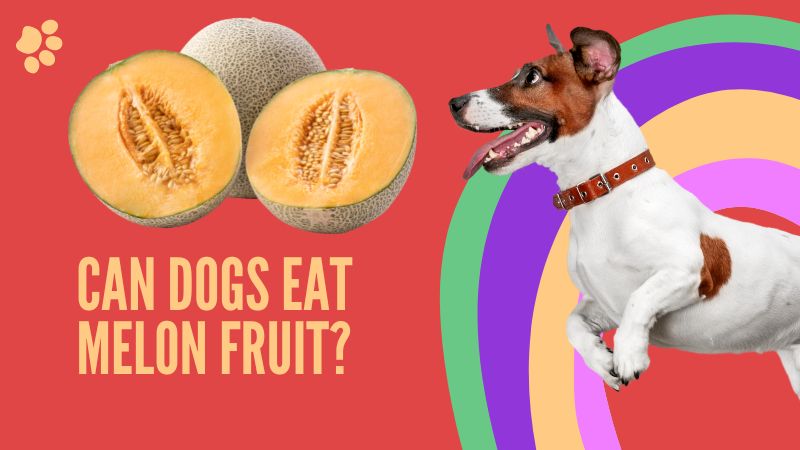
The summer months are perfect for enjoying a juicy slice of Melon.
Some pet owners might be unsure whether to let their dogs nibble on the melon fruit chunks or keep them away from them. Knowing which fruits your dog can eat can be tricky for a dog owner.
Can Dogs Eat Melon Fruit? The short answer is yes.
Melon fruit is a healthy alternative to traditional dog treats, especially when your pet is obese. However, due to its high sugar content, owners should ensure that they offer melons to their dogs in moderate amounts.
In what ways are Melons beneficial for dogs?
Melons are packed with dietary fibre, vitamin B6, niacin, folate, Vitamin A, and Vitamin C. These vitamins are essential for the production of red blood cells, digestion, hormone regulation, and stimulation of nerves in your dog. Additionally, it will improve your dog’s vision.
- Melon contains significant amounts of vitamin A and beta carotene, which help reduce cancer risk and prevent cell damage.
- Melon contains Vitamin B6. Insufficient B-vitamin intake may lead to anaemia, impaired nutrient utilization, and neurological problems.
- Vitamins A and C serve as antioxidants. Antioxidants play a critical role in capturing free radicals, which slow cell ageing, promote healthy cell function, and protect against certain diseases that cause severe health problems such as liver and kidney dysfunction, cardiac abnormalities, and cancer. To effectively control organ failure and cancer, antioxidants must eliminate free radicals.
- Besides being low in calories, melons also contain 90% water, providing much-needed hydration on hot summer days. There is a substantial percentage of water and fibre in melons. This nutrient stimulates and regulates peristalsis, the process by which the intestines continuously contract to move food down the intestines, which helps control diarrhoea in dogs. Fiber also helps prevent constipation by drawing water back into the intestines.
Veterinarians advise owners that their dogs should eat only their usual food and shouldn’t rely on human food like melons to meet their nutritional requirements.
Dangers associated with feeding melon fruit to dogs?
Melons can pose the following risks to dogs:
Choking: Melon rinds can cause gastrointestinal upset and adversely impact your dog’s digestive system.
The skin is fibrous and complicated, which can also be a choking hazard. In addition, since hulls are indigestible, they can cause intestinal obstructions that require surgical intervention.
High sugar content: Consuming large quantities of melons should be avoided. Your dog’s risk of developing diabetes mellitus increases when its blood sugar level spikes. Also, giving melon treats to diabetic dogs should be avoided.
Constipation: Excessive consumption of melon treats can result in excessive fibre in the dog’s diet, which may lead to constipation. If left untreated or not detected early, constipation can progress into obstipation and obstruction, leading to serious health complications and sometimes even death.
The right way to give Melon to your dog
During training, slices of Melon can be given as snacks, but they should not replace a dog’s regular diet.
- First, remove the Melon’s seeds and rind.
- After removing the seeds and rind from the Melon, cut the flesh into small chunks. Now it can be given to the dog.
Observe your dog’s reaction, especially if this is the first time your pet has tried Melon. Consult your veterinarian if you notice unusual behaviour.
Conclusion
Can Dogs Eat Melon Fruit? The short answer is yes.
The Melon and its close relative, the cantaloupe, contain nutrients that promote dog health and prevent disease.
Dogs enjoy eating melons because they are nutritious and refreshing.
Providing dogs with regular servings of Melon fruit can help them meet their nutritional needs and prevent illnesses caused by micronutrient deficiencies.
Leave a Reply